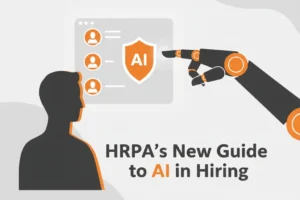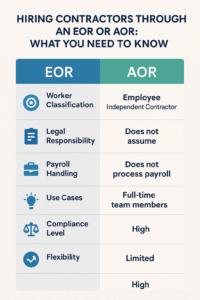
One Size Doesn’t Fit All in Recommendation Letters
Generic recommendation letters don’t work in 2025. Whether you’re endorsing a nurse, engineer, or teacher, tailoring the message to their industry is crucial. Customized letters highlight the most relevant competencies and improve hiring outcomes.
This guide breaks down how to write recommendation letters for key sectors: healthcare, tech, education, and more — and includes actionable tips to strengthen your letters’ impact.
Why Tailored Letters Work Better
1. Relevance: Different industries value different traits. Healthcare seeks empathy and precision, tech wants innovation, education values communication.
2. Credibility: Specific examples and industry terms show authentic knowledge. Employers trust detailed praise more than vague admiration.
3. Impact: Candidates with tailored recommendations stand out. A detailed endorsement proves their real-world value.
How to Write Letters for Key Industries
Healthcare (e.g., Nurses)
Recommender: Charge nurse, supervisor, or attending physician
What to Highlight:
- Clinical skills (e.g. ICU, ER, pediatric experience)
- Compassion and patient care
- Teamwork and communication
- Adherence to protocol
Example: “During a hectic night shift, Sarah calmly managed four trauma cases with poise and ensured family members were constantly updated. Her leadership and empathy were outstanding.”
Tech (e.g., Engineers, Developers)
Recommender: Team lead, engineering manager, or senior colleague
What to Highlight:
- Specific tech skills (Python, AutoCAD, AWS, etc.)
- Problem-solving abilities
- Key projects and measurable results
- Cross-functional communication
Example: “John redesigned our database indexing system, boosting search performance by 40%. His technical intuition and ability to explain complex logic helped align our dev and business teams.”
Education (e.g., Teachers)
Recommender: Principal, vice-principal, or department head
What to Highlight:
- Classroom management and teaching techniques
- Curriculum design and innovation
- Student engagement and success metrics
- Community or parental involvement
Example: “In her Grade 3 class, reading levels rose by 1.5 years within 12 months. Parents frequently praised her creativity and ability to make learning fun.”
Other Industries (Quick Guide)
- Finance: Emphasize precision, trust, and ethical behavior
- Creative roles: Highlight originality and campaign success
- Trades: Note safety, reliability, and hands-on skills
- Academia: Detail research, persistence, and subject mastery
Final Tips for Tailored Letters
- Always address industry-relevant traits
- Use clear, specific examples
- Avoid generic templates — personalize them
Or skip the guesswork: Divino Business Solutions provides ready-made industry-specific templates and expert guidance.
Call to Action
Get our free Industry-Specific Recommendation Letter Kit from Divino’s Quick Policies library. Whether you’re hiring a nurse, referring a teacher, or recommending an engineer — we’ve got the structure, keywords, and tone that converts.
Blog 6: Reference Letters vs. Recommendation Letters
Meta Description:
Reference letter vs. recommendation letter — what’s the difference? Learn when to use each, why it matters, and how to write both effectively in 2025.
Introduction: Clearing Up the Confusion
Reference letters and recommendation letters are often confused — but they serve different purposes. Using the right type strengthens job applications, academic submissions, and hiring evaluations.
This blog explains the key differences and when each letter is appropriate.
What Is a Reference Letter?
- General endorsement
- Not tied to a specific opportunity
- Typically addressed “To Whom It May Concern”
Common Uses:
- Job portfolios
- Volunteer work
- Background checks
What Is a Recommendation Letter?
- Targeted endorsement
- Customized for a specific job, school, or award
- Addressed to a named individual or committee
Common Uses:
- Graduate school
- Competitive jobs
- Scholarships and awards
Key Differences (Side-by-Side)
| Feature | Reference Letter | Recommendation Letter |
|---|---|---|
| Purpose | General | Specific |
| Detail Level | Broad | Detailed |
| Reusability | Yes | Usually no |
| Address | Generic | Personalized |
| Author | Any supervisor or peer | Someone closely tied to the opportunity |
When to Use Each One
Use Reference Letter When:
- Employer asks for general references
- You’re building a job search portfolio
- The situation is informal or character-based
Use Recommendation Letter When:
- A specific letter is requested
- You’re applying for academic or competitive roles
- Detailed praise is expected
For Employers and HR Teams
- Be clear in job ads: “2 recommendation letters” vs “3 references”
- Store both types for candidate profiles
- Use recommendation letters for senior or critical roles
Final Advice
If in doubt — ask what’s needed. Giving the wrong letter type can weaken your credibility. And if you’re writing the letter, be honest, specific, and aligned with the recipient’s expectations.
Need help crafting or reviewing letters? Divino Business Solutions offers templates and HR support tailored to your needs.
Call to Action
Streamline your hiring and job-seeking with Divino’s Letter Toolkit. From HR-approved reference letter templates to expert-reviewed recommendations, we’ve got everything you need to write with clarity and confidence.
Download your free toolkit from Quick Policies today. Check out how to simplify recruitment or The Bias of Interviews: Are You Just Hiring a Smile?









